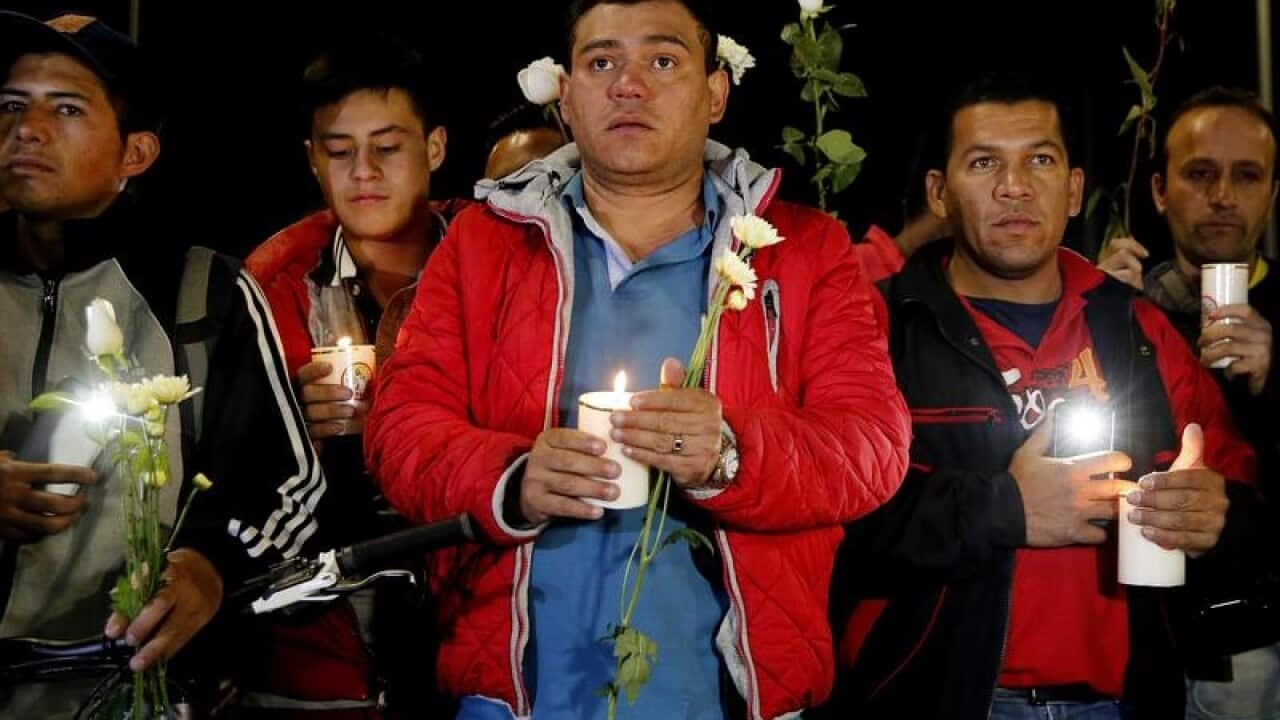Colombian police have raised the death toll from a car bomb that exploded in a police academy in the capital Bogota to 21.
Police say 68 people were injured in the attack, which prompted fears of a return to the country's violent past.
In Thursday's attack, which the government described as an act of terrorism, the car broke through checkpoints into the grounds of the General Santander School before it detonated, shattering windows of apartments nearby.
There has been no claim of responsibility for the blast, the deadliest since the government struck a peace deal with the Marxist FARC rebel group in 2016.
President Ivan Duque called the explosion a "crazy terrorist act" against unarmed cadets and ordered police and the military to find the perpetrators and bring them to justice.
"We will not rest until we capture and bring to justice the terrorists involved," Duque said late on Thursday.
"I tell the criminals that social repudiation awaits them, the rejection of all Colombians and the international community."
Local Caracol radio said that a suspect had been captured.
Colombian Attorney General Nestor Humberto Martinez said investigators identified the car's driver as Jose Aldemar Rojas Rodriguez, who was among the dead.
The vehicle, a grey Nissan Patrol four-wheel drive, was carrying 80 kilograms of the high explosive pentolite, which has been used in the past by Colombian guerrillas, Martinez said.
Car bombs were frequent in Colombia during decades of civil war between the government and various leftist rebel groups, as well as in violence involving the Medellin drug cartel led by the late drug lord Pablo Escobar.
The worst of the war, which killed some 260,000 and left millions displaced, ended when the government reached a peace agreement with the Revolutionary Armed Forces of Colombia (FARC) in 2016.
The last major attack was in January 2018 when the biggest rebel group that remains active, the National Liberation Army (ELN), detonated a bomb in the northern port city of Barranquilla, killing five police officers and injuring dozens.
The ELN, made up of some 2000 fighters and considered a terrorist organisation by the United States, has been in talks with the government since February 2017 to end the conflict.
Duque, who took office in August, has said conditions for peace talks include the ELN suspending hostilities and releasing all hostages.
Share

